Celebrating Women in Analytics 2023 - Analytics Leaders!
As part of the IAPA Women in Analytics Spotlight in 2023, we noticed many women in analytics leadership positions and wanted to specifically note them.
We believe in the adage "you can't be what you can't see", so in drawing attention to these analytics leaders we hope we are helping other women "see" the path to leadership positions. Some of the women featured have already been recognised for excellence in analytics leadership via the IAPA Top 25 Analytics Leaders program, the analytics industry's only analytics leader recognition program.

The IAPA Women in Analytics Spotlight 2023 - Analytics Leader Edition
Spend some time reading about the many amazing women analytics leaders in all verticals.
Click on a name to understand each person's role, proudest moment, greatest challenges and advice for women thinking of a future in analytics.
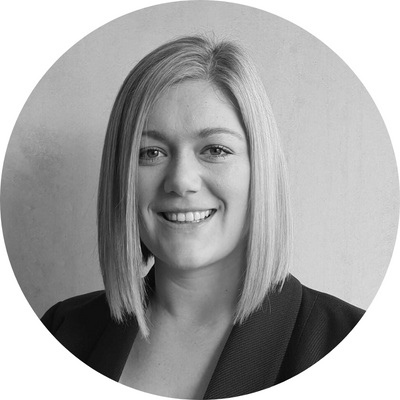
Danica Bellchambers
Director of Analytics, CHEP Network
In a normal day, what kinds of data / analytics activities are you involved in?
As the Director of analytics, heading up the data science team, my day-to-day work is divided into three main areas: delivery, leadership, and innovation. In the delivery aspect of my role, I focus on providing machine learning and advanced analytics to clients in new and creative ways. This involves client discovery sessions, automation, machine learning models, and applications of AI. I collaborate with all divisions to embed analytics in various decision areas, including Market Mix Models for predictive and forward-looking media buying and cognitive science for research. Leadership is another key area of my role, where I lead my team to deliver on similar projects, provide support and guidance, and encourage autonomy and growth. I also invest significant time in promoting data literacy throughout the agency, offering individual training sessions and team wide learning sessions to the broader departments. I also spearhead a data science internship program for current university students teaching them the fundamentals of data science and exposing them to real world applications of their studies. Lastly, I focus on innovation, immersing myself in the industry and leveraging key advancements in the field to deliver unique product offerings to our clients. I conduct research, attend brain trusts and bring back best-in-class thinking to the agency. Every day, I challenge the status quo, asking how we can improve as a team, agency, and industry.
What are the biggest challenges you face?
Each day presents its own unique challenges, both personally and professionally. One of the most significant challenges I face in my professional life is keeping pace with the rapid and expansive changes in the analytics space. While it's incredibly exciting to be a part of such an innovative era, it can also be overwhelming. The phrase "staying ahead of the curve" now carries a whole new meaning. Clients, too, face similar challenges, as they are inundated with out-of-the-box solutions available in the market at a competitively low cost, which pose a threat to our bespoke offerings. It is an ongoing effort to help clients understand the benefits and limitations of both solutions and remain relevant in an ever-more autonomous field. One of the challenges I encounter with my team is how these developments affect their learning abilities. With some studies focusing on the production of analytics, such as Python packages, rather than the fundamentals, new graduates enter the workforce with more technical skills and fewer soft skills. Understanding how to run a model is one thing, but possessing the ability to comprehend what it conveys, why it does so, and how to add value for clients is a critical human quality that we must nurture. On a personal level, I challenge myself daily to learn and grow. Staying abreast of the latest trends and developments in my field and academic pursuits is essential to success. I recognize the significance of possessing the skills and abilities necessary to support my team fully. Additionally, in my industry, advertising, having a strong voice is imperative. Thus, I make it a personal challenge to voice my ideas, even when they differ from the norm, to ensure that my contributions are heard and valued.
What would be the proudest or most enjoyable moment in your analytics career?
I recently proposed and fought hard to set up an internship program at my organisation providing valuable hands-on experience to students. I attribute a lot of my success to the incredible men and women who mentored me throughout my career and gave me valuable learning experiences. In recognition of how I got to where I am, I wanted to do the same for the next generation and worked with our HR department to trial a university placement program. Knowing that I have played some small part in the growth of the next generation of analysts and data scientists makes me incredibly proud.
What advice would you give to a woman wanting to get into the analytics industry?
Analytics requires both knowledge and creativity. While technical skills are essential, the ability to find innovative ways to apply those skills is equally important. The most valuable analytics is built on a foundation of imagination. While analytics was once a male-dominated field, this is changing rapidly. The influx of women into the field has brought new perspectives and approaches, as these women are proud to embrace who they are. They speak up and challenge the status quo, knowing that every step they take forward paves the way for others like them. With that in mind, my advice to women wanting to get into the analytics field is this: be brave, be creative, stand up for what you believe in and always bring your unique self to every situation. Technical skills can be learnt, creativity is all you!
In terms of the future of analytics, what do you think will be the most interesting aspect/s?
Recent advances in the analytics field have been particularly intriguing, with a strong focus on the use of analytics for social good. The innovative applications of analytics in healthcare, education, sustainability, and social justice are just a few examples of how analytics is making a significant difference in the world. As a passionate advocate for positive change, I am excited to see how these advances will continue to evolve and lead to new and exciting ways in which the industry can make a positive impact on our future.
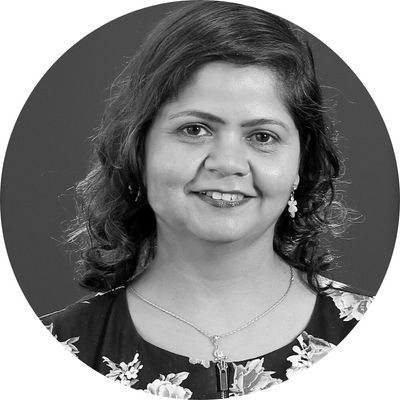
Manjusha Bhakta
Director - Data and Analytics, EY Consulting
In a normal day, what kinds of data / analytics activities are you involved in?
My two days are never the same. One day I may be responding to a data transformation RFQ. Another day I may be creating a POV for some latest analytics trends. Some days I may be managing the delivery of a complex data platform. One thing I surely do every day is to learn and grow.
What are the biggest challenges you face?
Organizations invest in the tools and technologies, but not enough investments in money, effort and time are made to educate the teams who are the ultimate users and beneficiaries.
What advice would you give to a woman wanting to get into the analytics industry?
I, too, entered this field a bit hesitantly. But if you want to make a real difference with your work to the organizations, communities and people, then data and analytics is the one you should be in.
In terms of the future of analytics, what do you think will be the most interesting aspect/s?
Generating AI is making a lot of buzz these days. With ChatGPT now it has reached general people. The whole AI is at its infancy stage still, and it has a long way to go to make real-life impacts. This area is interesting to watch and stay in touch
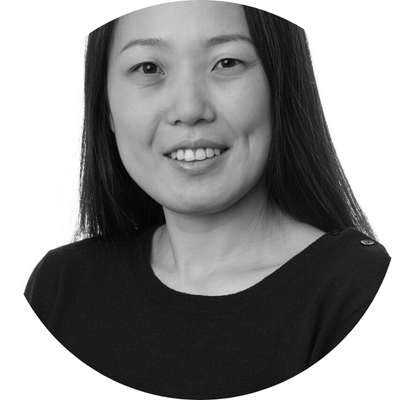
Linda Byun
Director, Strategy + Analytics, M&B
In a normal day, what kinds of data / analytics activities are you involved in?
My day is varied from shaping the data-driven transformation agenda for our clients to leading and supporting business outcome-led projects where we are applying data and analytics.
Interestingly, more and more the needs for organisations are in driving collaboration and alignment across the business to create lasting change, and this is consistent regardless whether the activity is strategy or implementation focused.
I think most of my day is spent listening, thinking, responding and mitigating business problems, where alignment of people, process and analytics play a central role to arriving at the solution.
What are the biggest challenges you face?
Although data and analytics are no longer new or shiny, we still have a long way to go in having a common understanding as an industry of what that capability looks like and the potential it holds. The order and sequence of the approach may differ for an organisation, but the big picture still needs to hold together to create harmony, but I often encounter discord resulting in a lot of time spent undoing and redoing.
Having said that, I think these challenges are also opportunities as the industry grows and matures as they result in learnings that help us to improve and become better each day. These experiences I believe make our work challenging but also meaningful and fun.
What would be the proudest or most enjoyable moment in your analytics career?
The most enjoyable moments in my analytics career are meeting and working together with people who are like-minded, passionate and excited about the work we are doing.
The proudest moments of my career have been working within these teams, and when we have achieved great things together as a result.
Some examples that come to mind are some of my milestones - learning and growing together as a team, viewing customers in a way we had never before through data and analytics for a financial services company; launching a new offering for a software company working with a great and diverse team; and last but not least launching a consultancy business with my business partner during COVID-19 lockdowns.
What advice would you give to a woman wanting to get into the analytics industry?
Regardless of what gender you are, I believe embracing the opportunities, whether they are large or small, help us to build experiences that become unique to us. Some opportunities may seem irrelevant and a step away from your goals, but don't pass these up, as they can shape your skills and your relevancy in the market in a way you have never imagined.
In terms of the future of analytics, what do you think will be the most interesting aspect/s?
I am interested to understand how the debate on people vs technology vs ethics will play out in the future, and what that optimal solution would look like. Technology has come far, and the possibilities are endless. How we strike the right balance to govern but also leverage these in a way that drives outcomes that benefit society - I believe there is still some way to go there and am excited to be a witness but also a participant of that journey.

Kate Carruthers
Chief Data & Insights Officer, UNSW Sydney
In a normal day, what kinds of data / analytics activities are you involved in?
Looking after the UNSW data estate from data & information governance through to analytics, business intelligence, and data management
What are the biggest challenges you face?
We have a lot of really diverse data and ensuring that it is managed in the safest way possible to maintain its confidentiality, integrity and availability is a big challenge.
What would be the proudest or most enjoyable moment in your analytics career?
Pretty proud of my team and how they migrated to our new enterprise data platform with zero downtime for customers.
What advice would you give to a woman wanting to get into the analytics industry?
Just do it. Make a start somewhere, and if you want to do it then do not let anyone (even yourself) talk you out of it.
In terms of the future of analytics, what do you think will be the most interesting aspect/s?
The next generation analytics that's just starting to emerge, including how we can deal with streaming analytics and AI, in particular Generative AI.
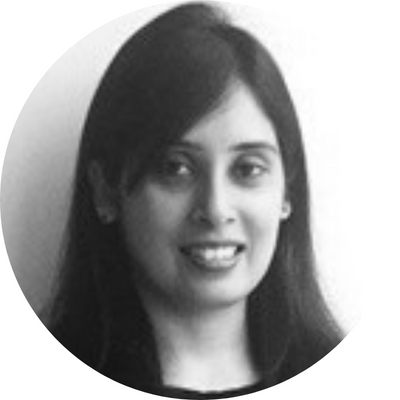
Anshu Chaudhary
Director - Business Analytics, JLL
In a normal day, what kinds of data / analytics activities are you involved in?
Data modelling & Management, Data governance, Data Engineering and Data Visualisation are the core activities that we do as D&A team at JLL.
I have been hands-on on the tools for 17+ years now but my as of today my day-to-day job demands more of relationship management with executive stakeholders. Both to share highlights of the work my team are delivering to help them achieve their business outcomes, and/or understanding their business goals and problems to identify opportunities to add value with data and analytics.
What are the biggest challenges you face?
1. Data quality /Data collection gaps
2. Data Literacy / User Adoption
3. Quantifying value / realisation of ROI that we bring as D&A team
What would be the proudest or most enjoyable moment in your analytics career?
I was shortlisted as "Data Leader of the year" award in 2022. I am very proud of the recognition received and the fact that I am representing my organisation for the work done by our team. This is not just a single most enjoyable moment but I enjoy every aspect of my job which usually usually entails guiding the smart technical people to develop some really impactful insights with a quantifiable outcome. Moreover, I love getting the business users excited about the new possibilities. And finally when we see our work helping the business progress toward their goals and priorities by giving them ability to identify the actions required is incredibly rewarding.
What advice would you give to a woman wanting to get into the analytics industry?
My advice for anyone looking to get into anything new is to take the first step and do it.
Women are naturally inclined to better understanding the needs and analysing the situation, solving the problems creatively. All we need is to learn how to do the same using data and information presented. The demand for such roles is very high at the moment, be it any industry. If we can leverage the business knowledge combined with some tech skills, that the best outcome for both the individual and the business.
In terms of the future of analytics, what do you think will be the most interesting aspect/s?
AI and Machine learning is the future. Now that we are sitting on the wealth of information , using data Ethically and maintaining the security/privacy of data are going to be the most important aspects in near future.
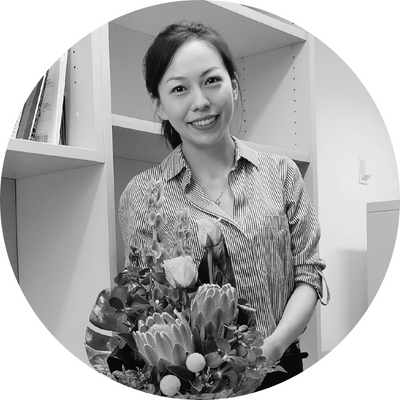
Sophia Duan
Senior Lecturer and Deputy Head, Department of Information Systems and Business Analytics, RMIT University
In a normal day, what kinds of data / analytics activities are you involved in?
By utilizing analytics to make informed decisions, staying current on the latest industry trends, and conducting cutting edge research in the field of business analytics, I strive to ensure that we as a Department that is offering business analytics education to the next generation of the business analytics professionals are delivering the most exceptional education to our students, and empowering them with the necessary tools and skills for success in the fast-paced and ever-changing world of business analytics.
What are the biggest challenges you face?
One challenge is to balance academic rigor with practical relevance in our courses. While it is important to provide students with a solid foundation in the theories and principles of business analytics, it is also critical to ensure that our curriculum is practical and applicable to real-world situations.
What would be the proudest or most enjoyable moment in your analytics career?
Being named the IAPA Top 25 Analytics Leaders for 2022.
What advice would you give to a woman wanting to get into the analytics industry?
Embrace your curiosity and passion for the field and never stop learning!
In terms of the future of analytics, what do you think will be the most interesting aspect/s?
Human-machine/analytics collaboration. The need for human-machine collaboration has become increasingly important as organizations seek to leverage the power of data and analytics to drive business insights and innovation. While analytics tools and technologies have the ability to process and analyze large amounts of data with speed and accuracy, they often lack the ability to interpret and contextualize this data in a way that humans can. This is where the collaboration between humans and machine becomes critical to generate more insightful and impactful results, and ensure that analytics tools and technologies are being used in ways that align with human values and ethics.
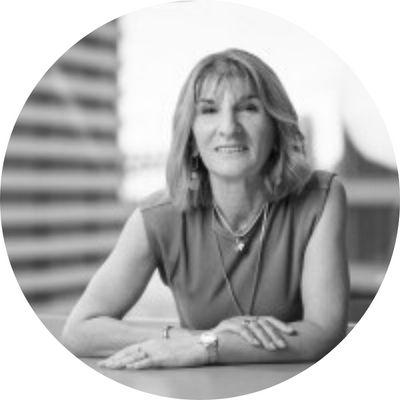
Katarina Dulanovic
Chief Data Officer, Allianz Insurance Limited Australia
In a normal day, what kinds of data / analytics activities are you involved in?
Ensuring alignment and delivery of our data strategy. That our major data and analytics initiatives are on track strategically aligned to support current needs with one eye on the future.
Supporting my people and my wider data community of practise teams to mature our data culture in how we use,share,look after our data to deliver value.
What are the biggest challenges you face?
Data talent shortage at the moment is one of the biggest challenges. This is a global challenge so I am not alone.
What would be the proudest or most enjoyable moment in your analytics career?
Hard to say, there have been many great moment in my data and analytics career, however one that stands, from not long ago, was being on the judging panel for our Global (worldwide) Allianz Hackathon event, where I had the pleasure to see some amazing analytics solutions from over 160 talented data professionals. Very divers teams both in gender and cultural background. It was just amazing to see what could be done with data to contribute to one of the world biggest challenge Sustainability (hackathon topic). Really proud to see our Australian team participating and coming equal second place.
What advice would you give to a woman wanting to get into the analytics industry?
I would really encourage woman to take up data and analytics careers as we really need the diversity, that can only come from having more females in data related roles in Australia and across the world.
Data and Analytics careers, whilst sometimes seen as challenging, they are also very rewording. Rewarding in the sense that in todays world, being in this career you are having the opportunity to shape the world of the future regardless of what industry you are working in. This sense of personal achievement is priceless.
In terms of the future of analytics, what do you think will be the most interesting aspect/s?
The world of data and technology is rapidly changing. Technology solutions that can take up the speed and diversity of data through embedded automation such as AI, Robotic process automation etc are changing our world at speed.
One thing I am passionate about with all this rapid change is that we ensure we use data for good, to ensure we are creating a safe and sustainable future, like ensuring we eliminate bias from our AI solutions, 'AI for good'.
Ensuring we have divers' data workforce and appropriate governance in place is a mast and the responsibility of every Data and Analytics leaders across the globe.
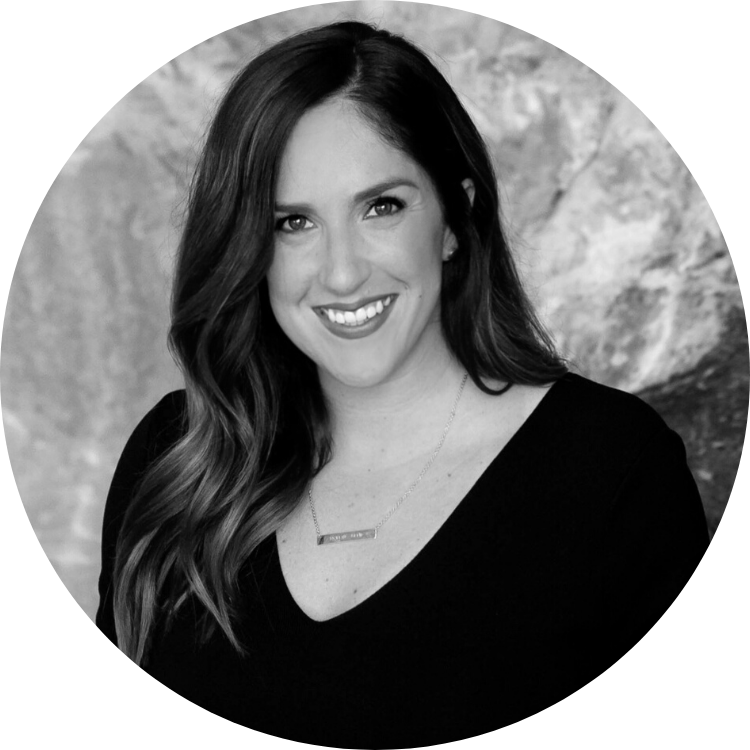
Erin Evans
Co-Founder | Director, Intelligen
In a normal day, what kinds of data / analytics activities are you involved in?
As the director of the business, I am involved in a variety of roles across the Data & Analytics consulting business including roles directly associated with D&A. I am one of the direct points of contact on new client engagements and work to understand current state architecture and work through our 'data strategy in a box' methodology with the team to produce a gap analysis and future state architecture recommendations and projections. These are all with a lense of ensuring our partner clients are empowered with best-in-class data and analytics solutions pushing as far into the realms of AI & ML once their platforms are scalable. I am then involved across the client engagement and implementation lifecycle, ensuring the correct SASS partners are recommended, the technical team is assigned and delivering to project timeframes and the highest value use cases are being realised through delivery.
What are the biggest challenges you face?
The biggest challenges I face are often around time management and balancing the many roles I have; not only within my business life but as a mother as well. Not only am I responsible for scaling a business in a sustainable, innovative and internally empowering way, but I am also actively involved on client site, managing my team, scale initiatives, financial management, project management and of course externally facing PR and marketing. The moment I close my laptop I am dashing to school pick up and ensuring I am present with my family before logging on later after bedtime. Aside from the challenges associated with managing the balance, one of the biggest challenges I face is an internal battle. For years, I've struggled with imposter syndrome as a woman building a consultancy in a male-dominated environment. As I've risen into more technical domains, it has only become more apparent and my conscious awareness has risen in response. The way I choose to combat this is with an active awareness and gratitude for stretching myself outside my comfort zone regularly and ensuring I am double (if not triple) prepared and educated to handle the challenges that come my way. Having the confidence to know I am prepared, definitely helps and I believe propels me to excel - there is never a level of complacency. I choose to harness it for good.
What would be the proudest or most enjoyable moment in your analytics career?
There have been so many proud and enjoyable moments across my analytics career however my most proud moment was probably also my most terrifying moment. It was the moment I finally publicly launched our Go to Market Strategy and company brand for Intelligen and officially put our name out there and our hat in the ring. We were up against many global vendors on a number of large client bids and very quickly realised a stream of winning tenders. Having operated 'in the shadows' with a select group of clients for a few years, I couldn't have been more proud to finally launch our name to the market and to be seeing our team out on multiple client sites, delivering real-world, meaningful impacts across some very large names. It was surreal and continues to be. Every day I wake up so grateful for getting to do what I do and for being invigorated to push the boundaries even further.
What advice would you give to a woman wanting to get into the analytics industry?
I am incredibly passionate about this. We are huge advocates of encouraging women into STEM across both FIRESOFT People and Intelligen (the FIRESOFT Group of companies I have co-founded). The analytics domain is absolutely ripe for women at the moment. There are huge call-outs for balancing gender ratios across organisations and finally clear awareness and intention to close the gender pay gap; and address the multi-factional challenges associated. There is a diverse variety of roles available in D&A from purely functional analysis roles all the way through to C-level positions. Data and Analytics has really been elevated to the forefront of corporations; the lifeblood of every organisation. My advice to a woman wanting to get into the analytics industry would be to decide on which stream - technical or funcational - and then as a necessity, complete the relevant qualifications or training. From there, get involved in associations, networks and expose yourself to as many different 'flavours' of D&A as possible, across as many different domains and industries as possible. The key is to find an industry or job vertical where they find true passion and then expand upon that!
In terms of the future of analytics, what do you think will be the most interesting aspect/s?
It's no secret that the analytics landscape across Australia is a good few years behind the rest of the developed world. We are lucky in a way - I often joke about having a crystal ball in looking across the pond. Whilst I believe there is still so much work to be done to elevate the baseline standards towards a 'modern data platform' across the average organisation, the front runners in the industry have demonstrated some incredibly exciting progression in the fields of AI & ML. Having been lucky enough to be part of some of these key transformations over the past few years, we have seen what is possible - and beyond. Whilst I am passionate about contributing to a national uplift of data capability and data democratisation across Australia, I am really excited to start seeing those optimised data platforms being utilised in ways to further extract value for organisations and push what now might seem impossible into the realms of the possible...!
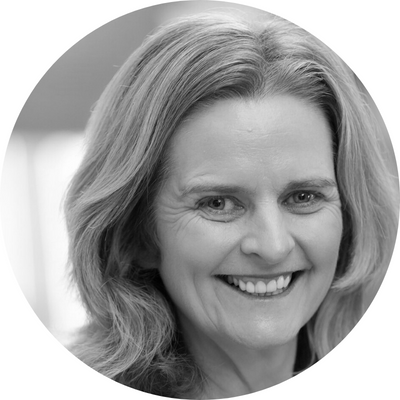
Susan Gibson
Head of Data Analytics and Artificial Intelligence, University of Technology Sydney
In a normal day, what kinds of data / analytics activities are you involved in?
As a data leader my role is always interesting and varied. In any given day my focus is on enabling student, staff and partner outcomes and experiences by utilising data to drive the university strategy. Core to this is building capability and ensuring that governance frameworks are in place and utilised. I have always ensured my teams are the forefront of technology with a current focus on building capability in AI and Graph technology.
What are the biggest challenges you face?
One of the most significant challenges is keeping up with the pace of technological change, best practices, governance and skills.
What would be the proudest or most enjoyable moment in your analytics career?
At my heart, I am a people person and therefore love seeing the passion and energy created by teams that work well together and build their own capabilities and career. This can be within my own team or transdisciplinary teams coming together to utilise the power of analytics and AI.
What advice would you give to a woman wanting to get into the analytics industry?
A great deal of research has discussed the importance of diversity to ensure the success of analytics teams. There are plenty of opportunities, and we would love to have more women in the industry!
In terms of the future of analytics, what do you think will be the most interesting aspect/s?
I am incredibly excited about the potential for artificial intelligence to drive digital transformation. The challenge will be to ensure appropriate governance guides decisions around utilsiation of AI and that we effectively balance opportunities with risks.
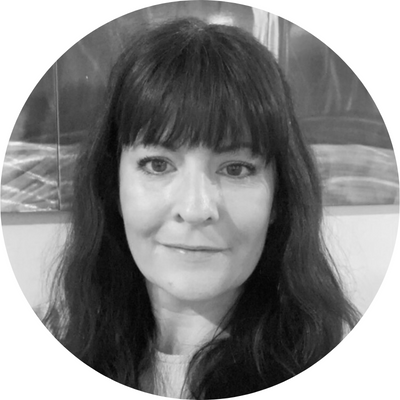
Kathryn Gulifa
Head of Data & Analytics, Catch
In a normal day, what kinds of data / analytics activities are you involved in?
Lots of meetings, understanding business strategy, goals and priorities so I can make sure we're working on aligned initiatives. And meeting with my team to understand where things are at so I can update stakeholders, help remove roadblocks or obstacles, and prioritise if there is competing demand. Then inbetween I'm spending time on the Data Strategy, Data Governance initiatives and building the brand of the Data & Analytics team by sharing our successes with the business.
What are the biggest challenges you face?
Supply and demand problems exist in every organisation when it comes to Data & Analytics. The biggest gift I can give my team is ruthless prioritisation and being a gatekeeper to distractions from our key priorities. And then building the plane while flying it - that is, the need to build new data products while maintaining existing operations.
What would be the proudest or most enjoyable moment in your analytics career?
I really enjoy building new teams and seeing them come together and do great things. When I see my team happy and proud of their work and being valued and appreciated by their business stakeholders, nothing beats that.
What advice would you give to a woman wanting to get into the analytics industry?
Data & Analytics roles are a mixed of three skills - Computing, Statistics and Soft skills/business acumen. You don't need to be an expert in all three categories to be successful in an Analytics role. If you have an interest in using data to solve important business problems then reach out to your resident Analytics Lead, an industry leader, or myself(!) and start a conversation about what you enjoy doing and what roles might be aligned to your skills and interests. We need more women in analytics and progress over the past decade has been too slow.
In terms of the future of analytics, what do you think will be the most interesting aspect/s?
Certainly the evolution of privacy laws will play a role in how we apply and manage analytics. There are strong focuses in Health and Sustainability that will be gamechangers. And Cyber Security is right at the top of the agenda with the recent publicity of data breaches. I find the evolution of the workforce interesting and how we continue to deliver in tough economic times, with a hot talent market and ever-increasing business demand and expectations.

Erin Hamalainen
Head of Data Analytics and Insights, The Fred Hollows Foundation
In a normal day, what kinds of data / analytics activities are you involved in?
Managing a data centralisation project and participating in the creation of a wider organisation data strategy.
Building and maintaining Power BI reports and dashboards and presenting insights and working closely with team leaders on data driven strategies.
Introducing the adoption of machine learning in marketing and fundraising.
Building data literacy skills for people in non-data focus roles and growing data analytics SMEs by fostering learning and development with people in existing data roles.
What are the biggest challenges you face?
Growing the Foundations analytics, machine learning and data literacy capabilities and resources to keep up with the Foundation's needs with limited budgets, staff and time.
What would be the proudest or most enjoyable moment in your analytics career?
I was given the opportunity to grow my skills on the job with a few patient mentors, a couple of online training courses and a lot of practice, failures and learnings (and later a Graduate Certificate of Data Science).
I really enjoy being able to now give back and help others that are interested to build their skills and knowledge in data and analytics.
My proudest moment was getting a HD in my Applied Analytics subject at Uni after years of hating maths after failing in high school!
What advice would you give to a woman wanting to get into the analytics industry?
Come and work in the Not-For-Profit or For Purpose space!
But seriously, always believe in yourself and speak your mind. The collective is greater than the individual, and diverse views and input to projects are important. This is especially important for the data work which is so quickly becoming a partner to humans through AI and machine learning.
In terms of the future of analytics, what do you think will be the most interesting aspect/s?
ChatGPT and other AI products and their affect on visualisation tools like Power BI will be an interesting space to watch, as AI gets getter the augmented analytics will also improve and hopefully improve user experience.
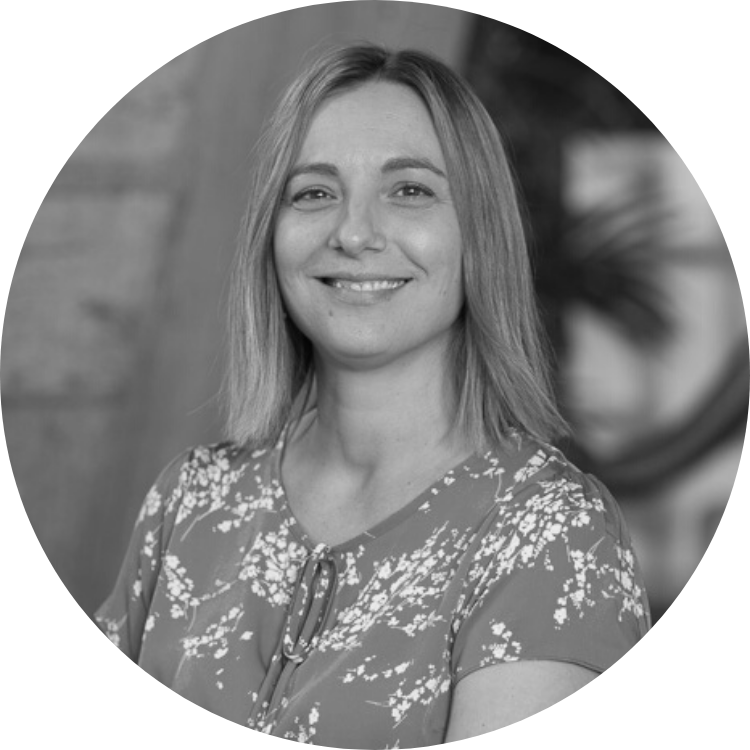
Sandra Hogan
Co-founder & Data Analytics Lead, Amperfii
In a normal day, what kinds of data / analytics activities are you involved in?
I am lucky enough to spend my days with many analytics professionals and business stakeholders to discuss how we can collaborate to deliver the benefits of data and analytics to organisations. I work on developing analytics solutions and products that will assist business teams to deliver benefits to their end customer. I also focus on ensuring we have a sustainable and relevant data and analytics strategy to support the organisation's objectives. With the rapid pace of change, the analytics team need to be aligned to business outcomes and continually refining how the engage with the business and deliver those outcomes and benefits.
What are the biggest challenges you face?
One of the biggest challenges is change management. All data and analytics products should drive some level of change to support the stronger use of data and analytics. To truly deliver value from analytics products, the organisation needs to work differently and that involves change management activities to consume the solution and ensure business stakeholders trust and act on the data and/or solution.
What would be the proudest or most enjoyable moment in your analytics career?
I feel most proud when I see younger analytics professionals see the impact they have made on an organisation with their work. Coaching and mentoring people is something that gives me joy and hopefully gives younger professionals a way to fast track their craft and achieve their personal goals.
What advice would you give to a woman wanting to get into the analytics industry?
My advice would be to focus on your business knowledge as well as your technical skills. I recommend that you collaborate closely with your stakeholders to ensure your work is actionable and delivers value every time.
In terms of the future of analytics, what do you think will be the most interesting aspect/s?
I see a focus around data literacy with a lot of value coming from how we better collaborate across the many diverse teams that need to come together to deliver a successful analytics and AI project. Success is a team effort and very relevant to data science as we move into the age of AI and advanced uses of data.
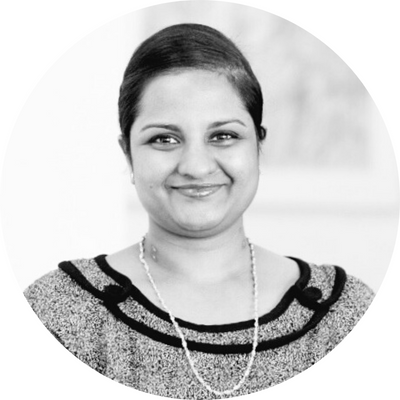
Su Jella
Director, Data and Insights, Tennis Australia
In a normal day, what kinds of data / analytics activities are you involved in?
Some of my key activities involve:
- driving the key initiatives to enable data transformation and capabilities in the organisation
- reviewing various reports and analysis on datasets
- exploring opportunities to blend datasets to build customer profiles
- delivering leadership to my team and organisation in delivering various initiatives in data areas
- understanding data gaps and enabling solutions to address and optimise them
- building frameworks and processes to operationalise data initiatives
What are the biggest challenges you face?
- Being able to meet the changing environment in data and technology really quickly
- Sourcing talent in a high-demand marketing
What would be the proudest or most enjoyable moment in your analytics career?
- Being recognized as Australia's Top 25 Analytics leaders
- Innovating and delivering AI solutions in a growing industry
- Being able to blend my background in marketing and customer analysis into a data-driven, technological leadership capability that is unique to the market
What advice would you give to a woman wanting to get into the analytics industry?
Continuous learning is the key to being able to drive success in this industry. Don't limit yourself and ensure you identify opportunities/projects that can help you to innovate in analytics. The most important characteristic is to have passion and curiosity for analytics to continue to learn and drive your abilities and progress in this field.
In terms of the future of analytics, what do you think will be the most interesting aspect/s?
Evolution of Web3, Metaverse, the growing demand for AI solutions and use of ChatGPT - understanding the data and models that drive this capability is going to be really interesting at the back of analysing the results from these solutions.
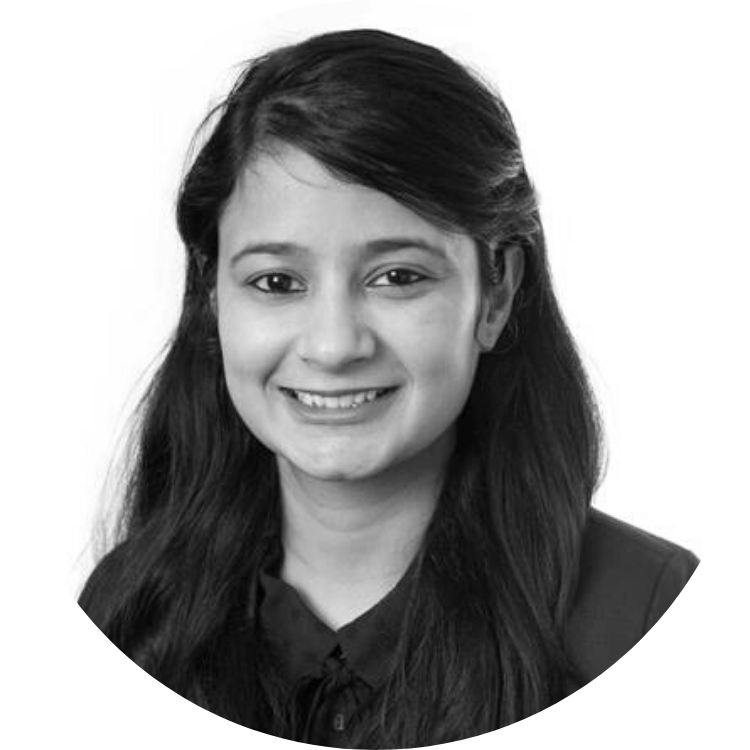
Kirti Khanna
Director, Nielsen Pvt Ltd
In a normal day, what kinds of data / analytics activities are you involved in?
I am a huge evangelist of applying analytics in your day to day tasks, be it with your clients or for your internal business. Exerting strategic leadership backed by data has helped me achieve double-digit growth for my team at Nielsen and 2-8% sales growth pa for clients in my portfolio.
While understanding ever-changing business needs is our prime objective, being ahead of the curve by enhancing & developing current analytical products is equally important, and is one of my key focus areas at Nielsen.
My team is extensively involved in solution design and use multiple analytical approaches to tailor specific solutions for our unique client needs. In addition, we support all stakeholders through the entire implementation and change management process.
What are the biggest challenges you face?
With the democratization of data, there is a need to regulate & balance innovation with risk & control.
What would be the proudest or most enjoyable moment in your analytics career?
COVID-19 disrupted many businesses and their planned go-to-market strategy. This affected their short-term execution plans, thus as part of the remediation measure, it was exciting as well as challenging to formulate strategies in the new paradigm, helping businesses realise higher returns on investment.
What advice would you give to a woman wanting to get into the analytics industry?
Discover your unique work style and focus on building soft skills as much as your technical skills.
The analytics industry needs tech-savvy professionals to execute computational analysis of the data as well as storytellers who translate complex findings to an adaptable business language.
In terms of the future of analytics, what do you think will be the most interesting aspect/s?
With Data becoming the new currency and the introduction of more powerful computational tools, Machine Learning is helping with scalability and speed. However, it will be interesting to see how unsupervised machine learning replicates human reasoning & intelligence in the future.
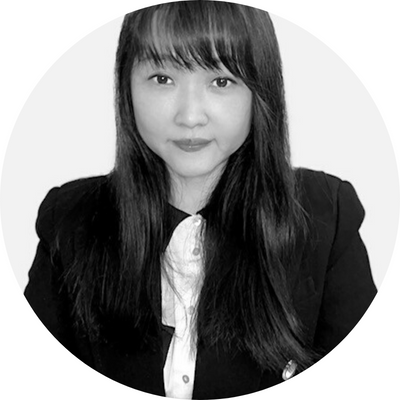
Angela Kim
Chief AI Education Officer, Women in AI
In a normal day, what kinds of data / analytics activities are you involved in?
In a normal day, I start most of the day with daily standup to ensure the team is all on the same page with the project progress, issues or challenges also gauging timelines for delivery and deliverables. Also it includes series of meetings with the team and leaders, including prioritisation for resource optimisation.
What are the biggest challenges you face?
With the current economic situation, the biggest challenge is delivering cost-effective project with given constraint - finding the magic formula for 80/20, 20% input and 80% output whether it is financial cost or operational cost.
What would be the proudest or most enjoyable moment in your analytics career?
Delivering Analytics project that actually makes impact on the community by delivering commercial value as well as social good, I am a firm believer in Data and AI for Good. Fortunately, I had many cases that I had to deliver analytics project to support and prevent risk of natural disasters and also ethical mortgage application project for the customers.
Not only I was really proud of myself and the team knowing that we delivered good outcome for the project but also thanks to the project, we were able to protect vulnerable cohort of citizens from the community via insurance and banking product.
What advice would you give to a woman wanting to get into the analytics industry?
Please follow your heart, we need more females in analytics to deliver diverse, inclusive and equitable analytics-driven product and services. There are so many roles actually women out-perform men, especially around Responsible and ethical data and AI which is a really important area.
In terms of the future of analytics, what do you think will be the most interesting aspect/s?
I guess, automation part of the analytics will be quite interesting since it will replace some task/jobs but also create new roles and encourage more human + machine collaboration - by 2030, 80% of jobs will be tech-based roles and that's why we need to encourage more females into analytics related field.
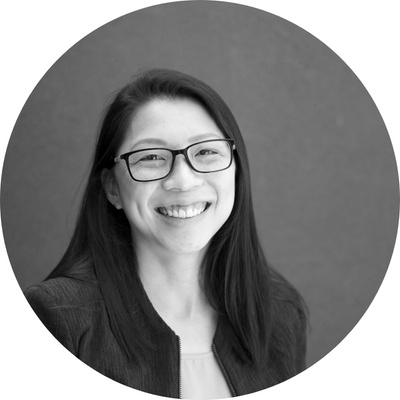
Michelle-Joy Low
Head of Data & AI, Reece Group
In a normal day, what kinds of data / analytics activities are you involved in?
Everything I do is focused on embedding data and analytics in our DNA; value from analytics is only realised when behaviours and decisions are changed to drive advantage – at all levels of the organisation. So no two days are the same; I’m deeply engaged with:
- Executive leaders on topics of investing in analytical capability, data governance & literacy, designing future operating models
- My team on analytical platform and organisational architectures future replete with opportunities across ML products, analytical decision-support and BI, and;
- Business and vendor partner teams all across Reece shaping domain strategies and the data capabilities (people, process, technology, data assets) needed to drive success
What are the biggest challenges you face?
Having to invest additional energy and time to overcome stereotyping around my gender, race and perceived age
Beyond personal attributes, data has seen a large number of recent advancements, and many Australian organisations are facing challenges keeping pace and grasping the need for investment and executive sponsorship
What would be the proudest or most enjoyable moment in your analytics career?
There has not been a single moment. My greatest satisfaction has been witnessing teams fundamentally change how decisions are made using data & intelligent technologies, and seeing our customers and people better off for it.
What advice would you give to a woman wanting to get into the analytics industry?
The path for women in analytics is not yet well worn. For anyone blazing a trail, facing challenges is inevitable. Persist, be the change you want to see – the work is never don’t, so celebrate every bit of progress made.
In terms of the future of analytics, what do you think will be the most interesting aspect/s?
Analytics will become table stakes. Two decades ago, knowing Excel was a differentiating skill in the workforce; Analytics will likely go the same way. What’s interesting to me is academic institutions, organisations and the current workforce will adapt to that change.
In a world where data & analytics is ubiquitous, I am excited to see how companies build and gain competitive advantage.

Elizabeth Marson
Head of Data & Insights, Australia for UNHCR
In a normal day, what kinds of data / analytics activities are you involved in?
Analysis, data strategy, analytical strategy, data warehousing, reporting, modelling
What are the biggest challenges you face?
Equality in the room. I have previously had encounters where I was the only woman in a room of men yet I was the most highly experienced or skilled however as I was a woman my experience was not appreciated or valued.
What would be the proudest or most enjoyable moment in your analytics career?
Building and celebrating a high performing, diverse team of analyst. My team today are composed of both men and women of diverse backgrounds who excel at what they do.
What advice would you give to a woman wanting to get into the analytics industry?
Keep focused and be confident that you know and can do the job as well as or even better than others in the same role. Don't let other detract you from your passion and goals.
In terms of the future of analytics, what do you think will be the most interesting aspect/s?
There is a wealth of data and ideas around analytics. Untilmately how we use the information to improve lives across the world is what I find to be fascinating.
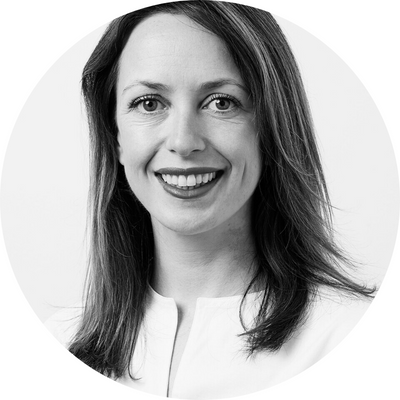
Ciara McGoohan
VP Customer Science & Strategy, Afterpay
In a normal day, what kinds of data / analytics activities are you involved in?
I run the team at Afterpay so my days are generally filled by meeting with team members, reviewing projects and engaging with stakeholders across the business to progress data driven transformation at Afterpay
What are the biggest challenges you face?
The Afterpay organisation is fast paced and changing / growing quickly hence our biggest challenge is ensuring we're aligned to business priorities - which can be a moving goal post! Ruthless prioritisation has become part of the day job, and we've had to build a highly adaptable team as a result
What would be the proudest or most enjoyable moment in your analytics career?
Without question, building a team of incredibly smart & talented data science, analytics & insights professionals at Afterpay.
What advice would you give to a woman wanting to get into the analytics industry?
Don't worry about having the 'perfect' qualifications - if you have a flair for numbers, people and business then Analytics is a career you should put to the top of your consideration list
In terms of the future of analytics, what do you think will be the most interesting aspect/s?
The potential application of conversational AI through schools and in education is fascinating to me. And I don't believe it will make the next generation/s lazier, I believe it will elevate their thinking and make them even smarter, which is a scary thought! :-)
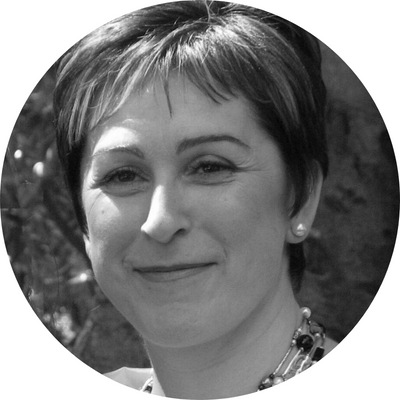
Nonna Milmeister
CDAO, RMIT
In a normal day, what kinds of data / analytics activities are you involved in?
I lead a full suite of Data and Analytics functions, including Data Governance, Advanced Analytics and AI and implementation of large data and analytics programs
What are the biggest challenges you face?
The more value we deliver, the bigger a demand for our services become. Prioritisation of strategic initiatives and innovation together with day to day requests is something that is always on my mind. In terms of organisation as a whole, providing wider access to data to our stakeholders while complying to all data security and privacy requirements is very important.
What would be the proudest or most enjoyable moment in your analytics career?
Seeing how our Senior Executives introduce themselves as Data Trustees, learning and accepting accountability for data and embracing change is very uplifting. Also, delivering great dashboards and analytics models that delight our stakeholders and seeing my team innovating and coming up with new and exciting ways to meet our stakeholders aspirations. This culture of innovation and team spirit is what makes every day a beautiful day.
What advice would you give to a woman wanting to get into the analytics industry?
This is the most interesting and rewarding career you can choose. It is an innovation galore with new tools coming to the market every day. Pick a company that is focused on innovation and learning and supports diversity. Look for culture fit and you will enjoy every day of your working life
In terms of the future of analytics, what do you think will be the most interesting aspect/s?
We already seen how OpenAI changed our lives and challenged our thinking. People are always going to be more clever than machines, but we leave in the era of AI and be part of this journey is extremely satisfying.
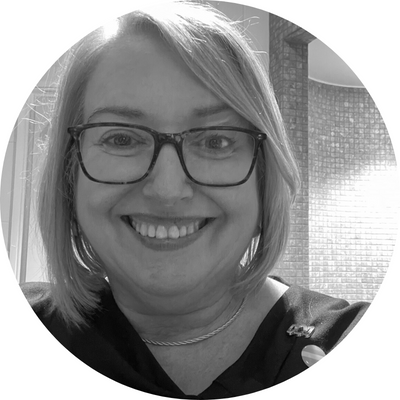
Liz Moore
Head of Audience Data and Insights, ABC
In a normal day, what kinds of data / analytics activities are you involved in?
Developing strategy for data and tech environments which support insight generation; providing advice and guidance to senior decision makers to support business decisions - from organisation strategy, day to day business decisions like content commissioning, scheduling, marketing campaigns. Developing work plans for projects. Working with analysts, data engineers to review pieces of work and progress against plan. Coaching and mentoring team members. Taking stakeholders through the results of analytics projects and guiding and shaping decisions based on audience data.
What are the biggest challenges you face?
Keeping the data environment up to date with rapid advancements in technologies. Ensuring me and my team members keep their skills fresh and on the leading edge in a rapidly changing tech world.
What would be the proudest or most enjoyable moment in your analytics career?
Working with teams of amazingly smart analytics professionals to shape the strategic direction of the companies I’ve worked for.. Knowing that the analytics and insights we provide has helped shape the organisations we work in, is incredibly enjoyable and fulfilling.
What advice would you give to a woman wanting to get into the analytics industry?
Technical skills are the price of entry to the profession, what will super charge your career is the ability to collaborate with stakeholders and communicate complex ideas simply and easily. Learn the language of the business you work in - read the annual report; the organisations strategic plan; find a mentor outside of analytics who can help you navigate the organisation.
In terms of the future of analytics, what do you think will be the most interesting aspect/s?
How automation through AI will enable us to do more, unlock more insights, and have greater business impact.
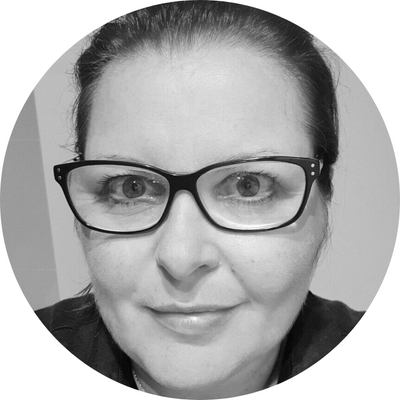
Alena Nadvornikova
Head, Business Insights and Analytics, The University of Sydney - Faculty of Medicine and Health
In a normal day, what kinds of data / analytics activities are you involved in?
Provision of insights/advice to key stakeholders for various purposes (strategic and operational, focusing on opportunity generation or process optimisation, tracking internal KPIs or looking at market and competitive intelligence); development of visualisations and dashboards, engagement with key players in our business and leading a team of fantastic number-crunchers. Above all, loving and being passionate about data!
What are the biggest challenges you face?
messy data, poor data literacy of key stakeholders, lack of data integration, a lot of data wrangling
What would be the proudest or most enjoyable moment in your analytics career?
too many :-) ...
What advice would you give to a woman wanting to get into the analytics industry?
the same I would give any man. If you love data, just DO IT! It's fun and, for the foreseeable future, hot!
In terms of the future of analytics, what do you think will be the most interesting aspect/s?
provision of analytical tools to the masses
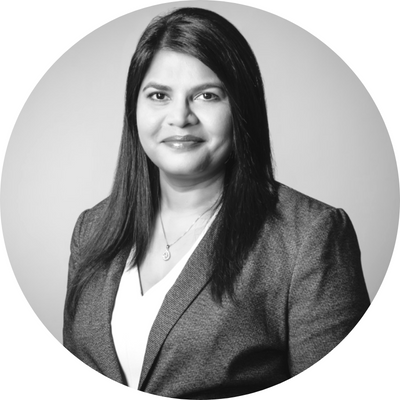
Aruna Pattam
Head - AI, Analytics and Data Science, Capgemini
In a normal day, what kinds of data / analytics activities are you involved in?
As Head of AI, Analytics & Data Science, my days are always varied. From working with stakeholders and clients to monitoring AI & Data Science usage, my work is diverse and dynamic. I develop new methods and algorithms and keep up-to-date on research and trends, attending conferences to stay ahead of the curve. Evangelising AI & Data Science and engaging with external communities are also crucial aspects of my role. Managing external relationships is also essential. It's an exciting field with ever-changing challenges and opportunities, keeping me constantly learning and growing.
What are the biggest challenges you face?
Biggest challenge and also an opportunity is keeping up-to-date with the rapid evolution of AI technology. This requires a commitment to continuous learning and investment in training and development. Additionally, staying ahead in terms of innovation and thought leadership in the field is crucial. It's important to balance the need for innovation with the need for practical, cost-effective solutions that deliver real value to clients. Also, managing the ethical and regulatory implications of AI and data science projects is an ongoing challenge that requires careful consideration and planning.
What would be the proudest or most enjoyable moment in your analytics career?
I'm proud to be named to the 100 Brilliant Women in AI Ethics list for 2023, LinkedIn Top Voice in Technology for 2022, and World Top 200 Business and Technology Innovators. Being able to mentor and inspire other women in the field is equally rewarding. These accomplishments remind me of the impact that AI and analytics can have on the world and the importance of pushing boundaries.
What advice would you give to a woman wanting to get into the analytics industry?
My advice would be to pursue your passion and never stop learning. Seek out opportunities to gain experience, whether it's through internships, volunteer work, or personal projects. Connect with other women in the field and seek out mentorship and support. Don't be afraid to ask questions and be curious. Finally, believe in yourself and your abilities, and don't let anyone tell you that you can't succeed. The world needs more women in analytics, and you can be one of them!
In terms of the future of analytics, what do you think will be the most interesting aspect/s?
Responsible AI will become increasingly important. It is essential that we consider the ethical implications of our work and ensure that AI systems are developed and implemented in ways that are fair, transparent, and accountable. This will require collaboration across diverse teams and the development of new tools and techniques for evaluating and mitigating potential risks. By prioritising responsible AI, we can help to build a future where analytics technologies are used to drive positive social and economic outcomes.
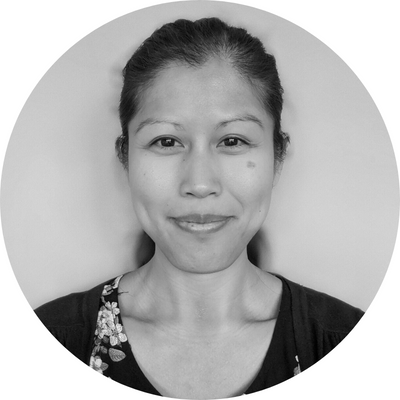
Kimly Scott
Analytics Manager, Luxasia
In a normal day, what kinds of data / analytics activities are you involved in?
In a normal day, my work involves wrangling data, building out reports, dashboards and visualisations and looking for ways to help my team and my organisation work smarter with data.
What are the biggest challenges you face?
The biggest challenge I face is finding the right balance between juggling career and family. With two young children, it’s hard to find the time and the focus to work on advancing my career both within my organisation and through my personal work. I’d like to be able to create more, volunteer, mentor - but with the time and energy commitment of a day job and family - this is not always possible.
What would be the proudest or most enjoyable moment in your analytics career?
I’m most proud when I know that I have inspired someone with my work. When I receive messages from those starting out in data visualisation or analytics to tell me that they like my work or my work has inspired them, it always makes me smile. There is no greater feeling to know that I have helped someone on their journey.
What advice would you give to a woman wanting to get into the analytics industry?
My advice would always be to build your network. Connect yourself with other analysts or join a community. There are many groups and organisations out there that are purely female focussed too. These groups work to connect, educate, and inspire those in their community.
In terms of the future of analytics, what do you think will be the most interesting aspect/s?
In terms of the future of analytics, I think it would be interesting to see how data can be used for good - to make a change in the world. We know how organisations can use data to make decisions and turn a profit, but what good can data do outside of this? For example, how can we use data to combat climate change, tackle poverty, and improve health. I’d really like to see how we can harness data for good and enact positive change in the future.

Vaishali Tiwari
Director - Performance and Insights, JLL
In a normal day, what kinds of data / analytics activities are you involved in?
In a normal day, I'm usually involved in customer solutions, data pipeline, and generating insights. I'm also responsible for highlighting focus areas for the team. For example, if we're working on a project for a specific customer, I'll review their data and analytics needs to determine how best to approach the problem. This might involve building a custom data pipeline or report, or it might simply be providing them with some insights based on our existing data. In either case, my goal is to help our team deliver value to our customers.
What are the biggest challenges you face?
One of the biggest challenges is that some people are not open to change. They resist change to existing processes and do not fully trust the results of analytics. This can make it difficult to get everyone on board with new initiatives. Another challenge is that depending on manual inputs can be time consuming and prone to error. This makes it difficult to get accurate data in a timely manner.
What would be the proudest or most enjoyable moment in your analytics career?
For me, it is when I am able to make a real impact on the strategy of a company or aid in changing an existing process to reach that goal. It is gratifying to know that my work is having a real and positive change on the business. These moments reflect the value that analytics brings to organizations and help solidify my role as a strategic partner within the company.
What advice would you give to a woman wanting to get into the analytics industry?
If you're a woman who's interested in getting into the analytics industry, my advice is to go for it! You're already analytical by nature, and extending that into your professional life will only make you more successful. Curiosity is key in this field - keep asking questions and looking at the world through a data lens. You'll be amazed at what you can discover. And finally, don't forget that you're part of a wonderful community - there are lots of people out there who are willing to help you on your journey.
In terms of the future of analytics, what do you think will be the most interesting aspect/s?
AI and predictive analytics will continue to revolutionize the field of analytics. By providing real-time insights, AI will help businesses make more informed decisions and enable them to operate more efficiently. In addition, predictive analytics will become increasingly important as we strive to anticipate future trends and understand how they will impact our lives and work.
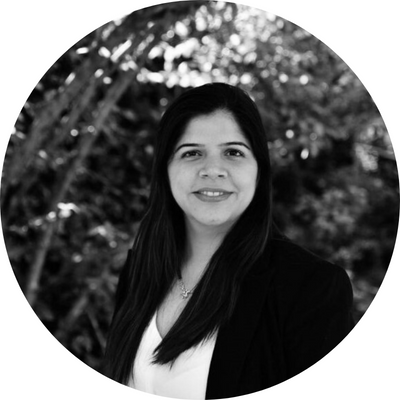
Bhavika Unnadkat
Head of Data Analytics, governance and Knowledge Management, Energy Australia
In a normal day, what kinds of data / analytics activities are you involved in?
Leading data Teams
Data Strategy
Data Governance
Technology evaluation and implementation:
Data Analytics
Stakeholder Management
Talent Development
What are the biggest challenges you face?
Currently getting the buying for data governance across the business.
What would be the proudest or most enjoyable moment in your analytics career?
Successfully completing a complex data analysis project.
What advice would you give to a woman wanting to get into the analytics industry?
The analytics industry is competitive, so it's important to be persistent and confident in pursuing your goals. Believe in yourself and your abilities, and don't be afraid to take risks and try new things.
In terms of the future of analytics, what do you think will be the most interesting aspect/s?
Increased emphasis on data privacy and security: As the use of data becomes more widespread, concerns about data privacy and security are likely to increase. Businesses and governments will need to implement more robust security measures and data protection laws to safeguard sensitive information.
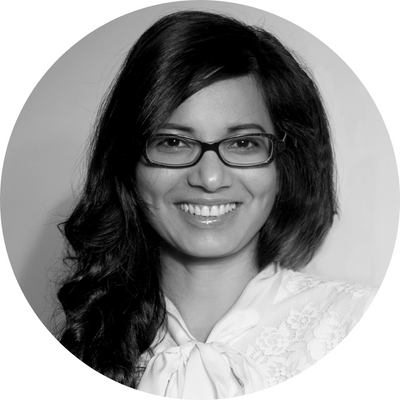
Angkana Whiley
Director, PwC
In a normal day, what kinds of data / analytics activities are you involved in?
I lead and implement data strategies and data improvement programs for public sector agencies which may include establishing foundational data capabilities such as data governance and management frameworks and practices, data platforms and data integration solutions, and data analytics projects to support decisions.
What are the biggest challenges you face?
While there is unanimous interest and commitment for agencies to use and manage data better in their operations, each may be embarking on their data reform journeys from a different starting point. Agencies face challenges such as legacy ICT systems that impede data use and sharing, long standing cultural and behavioural practices that hamper the acceptance and use of data, lack of funding and investment in data foundations, data assets are siloed - not easily discoverable, accessible, shared for use and reuse, lack of social licence and trust in public sector data use, poor workforce data literacy and proficiency, lack of understanding and capabilities to support data privacy and security protections, lack of guardrails through data governance, legislation, and policies + privacy, legal, ethics,and lack of common and repeatable data and analytics processes. The large part of my challenges to support agencies to solve these problems and issues is focussed around lack of leadership and investment, lack of clarity on scope and often narrow scope due to legacy agency structures, complex stakeholder relationships across the ecosystem, lack of resourcing to support agency data uplift.
What would be the proudest or most enjoyable moment in your analytics career?
Always, hand down, when my teams succeed in their day to day work, deliver excellent work, learn new things, improve their capabilities and get promoted. Second has been seeing data insights directly informing decisions to make a difference and contributing to outcomes people and communities.
What advice would you give to a woman wanting to get into the analytics industry?
You are desired, needed, and the best person for working in data analytics - do not let anyone stop you in your ambition and learn from others around you - find a few mentors and a sponsor - keep moving and learning, do not stagnate - but importantly have fun
In terms of the future of analytics, what do you think will be the most interesting aspect/s?
We will see the ability for data analysts both novice and advanced to work better, smarter and faster using enhanced processes, tools and technologies - such as AI/ML augmenting how we work with data (velocity, variety, and volume) to deliver trusted insights, while we see improvements in how data is acquired, managed, and responsibly shared for use and reuse.
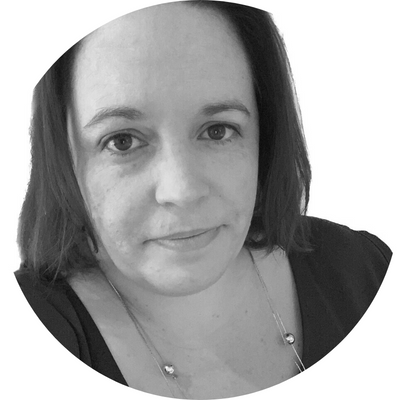
Kate Zubrinich
Manager Data and Analytics, Local Government Association of Queensland
In a normal day, what kinds of data / analytics activities are you involved in?
My role is centred around providing data and analytics services to Queensland councils. Our mission is to provide digital leadership enabling better councils and better communities across Queensland. The services we offer are many and varied, from building enterprise dashboards helping councils gain insights on performance to analysing data in niche areas such as energy consumption and identifying anomalies. A large part of my role is to assist councils increase their data literacy and maturity.
What are the biggest challenges you face?
The biggest challenge we face is often culture change and assisting organisations with limited understanding of how data can be used to assist them in their everyday jobs. Often times the organisations we work with have very manual processes. Shifting them from these types of processes to more automated ways of working is confronting for people. Helping people to see how automating processes and providing insights into problem areas can help them be more focused in their role and free up their time to do the more important parts of their role is extremely rewarding.
What would be the proudest or most enjoyable moment in your analytics career?
In my previous role, I was in charge of a project that was implementing a cloud based data platform that included IoT analytics. One of the solutions we developed analysed data from smart water meters that had been installed a few years prior yet hadn’t been actively analysed. The analysis that we completed in the first few weeks of accessing the data identified a potential major water leak at a property that had been occurring for many months, costing the customer thousands of dollars a month. We were able to advise the customer who had the issue assessed and rectified immediately.
What advice would you give to a woman wanting to get into the analytics industry?
Believe in yourself and don’t listen to naysayers. In my first data role, my boss told me on my first day that he didn’t believe I’d succeed and to just do my best in my trial period. My guess on why he said this was that my education background (Bachelors of Psychological Science) and my employment history in call centres was not up to his standard. Within three years, I had achieved two promotions and was then his peer, not his subordinate. Having now worked in the IT / Data / Digital industry for many years, I have learned to back myself and to let my skills talk for themselves.
In terms of the future of analytics, what do you think will be the most interesting aspect/s?
Predictive analytics and AI/ML is a massive area of growth across many industries. Being able to predict where problem areas are likely to be and focus efforts to proactively manage issues is key for pretty much every business. In the world of local government there is a long way to go in the maturity space before these sorts of processes can be implemented at scale and I’m excited to be on the journey with them.
The other area that is really interesting is the use of solutions like ChatGPT and how that is going to change the way we work into the future and what new employment opportunities will come about because of it.
